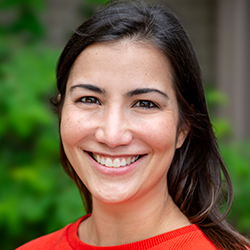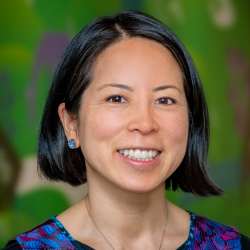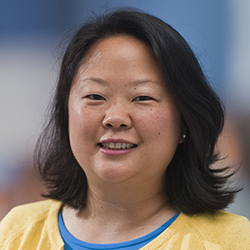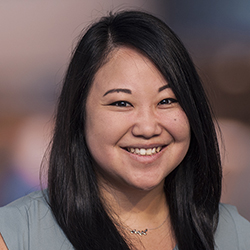Fatty Liver Program
What is the Fatty Liver Program?
Seattle Children’s is home to the Northwest’s only multidisciplinary program dedicated to diagnosing and treating nonalcoholic fatty liver disease in children and adolescents. Nonalcoholic fatty liver disease, or NAFLD, is a range (spectrum) of mild to severe liver disease. It occurs when fat builds up in the liver in overweight children or adults. NAFLD has become the most common cause of chronic liver disease in children. At Seattle Children’s, we are very concerned about the increasing number of kids whose health is affected by NAFLD. The Fatty Liver Program is a team of liver, nutrition and other specialists focused on helping kids and families change their diets and activity levels so that the disease won’t progress to a more severe stage.
What’s special about the Fatty Liver Program?
-
Diagnosis from experts
Many people aren’t familiar with nonalcoholic fatty liver disease in children. It usually gets brought to a parent’s attention when a child’s doctor screens for the disease with a blood test, and the results show their child has high liver enzyme levels. (Doctors have medical guidelines to screen for NAFLD in children who are obese and are age 10 or older.)
High liver enzyme levels are a sign that your child’s liver is inflamed, but they do not tell the doctor the type of liver condition your child has. Your child could have a liver condition other than NAFLD. It is important to get an accurate diagnosis so that your child gets the proper treatment. Because many pediatricians and other specialists don’t regularly treat NAFLD, we recommend your child be seen by a liver specialist (hepatologist). At Seattle Children’s Fatty Liver Program, you get the knowledge and experience of a team of 3 dedicated pediatric hepatologists: Drs. Niviann Blondet and Evelyn Hsu. Every day we strive to improve the care that is available to children.
-
Access to early intervention
Nonalcoholic fatty liver disease ranges from mild to severe. It is important to identify it and treat it early so that severe liver damage, and possibly liver failure that could require liver transplantation, can be prevented. The dedicated hepatologistson our team provide an accurate diagnosis, an important first step. If caught early, there is still time to stop the disease from progressing – and even reverse it.
-
A team of specialists to support you and your child
The treatment for nonalcoholic fatty liver disease (NAFLD) includes eating a healthier diet, exercising more and losing weight. Most people of any age who are trying to make such lifestyle changes need support from their family and caregivers. This is especially true for children. Our team tailors care to your child’s needs and gives you tools and resources to support your child. In addition to our dedicated pediatric liver doctors, our team includes:
- A dietitian, who can help you and your family ease into making and eating healthier meals and snacks
- A psychologist who can help with motivation or talk with your child about depression or anxiety that might be contributing to struggles with weight
We also partner with other teams and might refer your child to:
- An endocrinologist, if your child has or is at risk for conditions such as diabetes or high cholesterol. Children who have NAFLD are at higher risk of being affected by these conditions.
- An athletic trainer, who can work with you and your child to increase physical activity in a safe way.
-
Treatment tailored to you and your child
The Fatty Liver Program usually sees children who have been referred to us because their blood tests show high liver enzyme levels. On your first visit, doctors rule out other causes for your child’s enzyme levels. Your doctor may order an ultrasound to help with the diagnosis. If your child is diagnosed with nonalcoholic fatty liver disease, the team sends you home with a treatment plan that focuses on diet and physical activity.
Before coming up with diet and exercise suggestions for your child, we take into account their age, what they are used to eating, and how much activity they are currently doing. We consider things like how much time you have to prepare meals and whether you live in an area with parks or playgrounds. We work with you to come up with activities that are practical for you to do and that your child and family will enjoy doing. We will ask you what tools and resources we can give you so that your child can succeed.
-
Help with motivation
The most important factor in your child improving their health is that they find their individual reasons or motivations to change. We will help them pick the changes they want to work on. Part of that motivation will come from you, the parent. You can have a positive influence if your child sees that you are excited about moving more and eating healthier. Maybe you can start a new routine of walking around your neighborhood after dinner, or maybe you can invite them to choose a healthy recipe and you can cook it together. If your child still lacks interest, we have counselors they can talk to. Your child may have anxiety or depression that is making it more difficult for them to make healthy changes.
One way we can help motivate your child is by making technology part of their new routines. We’ll suggest apps for tracking calories and activities, and Pinterest sites and message boards for sharing recipes. Another way we encourage children is to invite them to join a “30-day challenge” that makes meeting goals more like a game. For Day 1 of the challenge, we might ask that your child do 3 pushups that day. We’ll ask that they slowly increase the number each day for a month so that by Day 30, they are doing 60 to 90 pushups a day.
-
Advancing treatment through research
As 1 of 12 pediatric clinical centers of the Nonalcoholic Steatohepatitis Clinical Research Network (NASH CRN), Seattle Children’s is studying and collecting data to learn more about nonalcoholic steatohepatitis (NASH). We are also conducting clinical studies on prevention and treatment.
How can I get an appointment?
If you have a referral or would like a second opinion, or for more information about the Fatty Liver Disease Program, call 206-987-2521 or 866-987-2000 (toll free).
Telemedicine at Seattle Children’s
You may be offered a telehealth (virtual) appointment. Learn more.
Who’s on the team?
The Fatty Liver Program is a team of experts who have years of experience working with children and their families:
Teams
Contact Us
Contact the Fatty Liver Disease Program at 206-987-2521 or 866-987-2000 (toll free).
Scheduling an Appointment With the Fatty Liver Program
- If you would like a referral to Seattle Children’s Fatty Liver Program, talk to your primary care provider or specialist.
- How to schedule an appointment at Seattle Children’s.
- See our Insurance Services page for answers to your questions about insurance coverage.
- If you already have an appointment, learn more about how to prepare.
- Learn about Fatty Liver Disease Program resources such as useful links, videos and recommended reading for you and your family.
Refer a patient
We’re committed to partnering with referring providers and answering their questions. If you are a referring physician and would like to talk to a Fatty Liver Disease Program physician about a patient, call 206-987-7777.
Read about how to refer a patient.
Paying for Care
Learn about paying for care at Seattle Children’s, including insurance coverage, billing and financial assistance.



